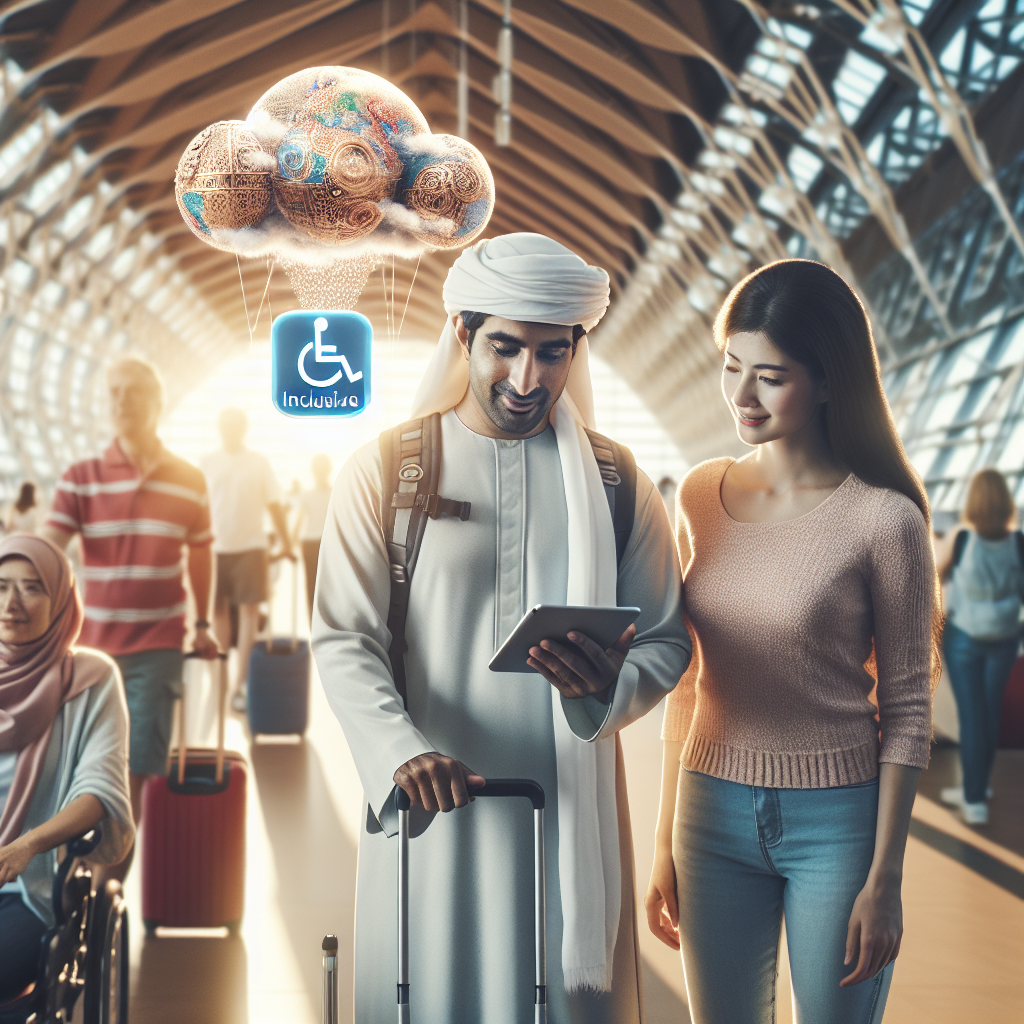2025: AI-Powered Accessibility Tools Are Reshaping Inclusive Tourism
The tourism industry is undergoing a profound shift as artificial intelligence (AI) helps remove long-standing barriers to travel for people with disabilities. In 2025, AI-driven accessibility tools are no longer fringe innovations—they're central to inclusive guest experiences. From visual recognition for blind travellers to real-time translation for deaf guests, AI is unlocking a new era of independence and equity across the sector. Global travellers with disabilities now represent a market worth over €800 billion annually, yet are still vastly underserved (unece.org).
Why 2025 Is the Breakthrough Year for Inclusive AI
- Open-source LLM fine-tunes allow disability advocacy groups to build bespoke conversational agents with accessibility-first datasets.
- Apple, Meta and Google rolled out AI-native accessibility features in 2024, normalising adaptive interfaces in everyday travel tech (wired.com).
- Legislative pressure mounts as countries tighten accessibility laws, compelling tourism brands to adopt AI tools for compliance and inclusion (ec.europa.eu).
Use Cases: AI Tools Elevating Accessible Travel
1. Vision-Aware AI Itineraries
Tools like Be My Eyes use GPT-4 to narrate environments in real time, helping blind or low-vision travellers explore unfamiliar destinations safely (bemyeyes.com).
2. AI Captioning & Translation
LLM-powered caption bots transcribe and translate live tour commentary, converting speech into multilingual subtitles or sign-language avatars (signapse.ai).
3. Custom Conversational Interfaces
Hotels are deploying AI agents that respond to text, speech or touch input based on guest preference, reducing cognitive and physical barriers (hotelnewsnow.com).
4. Smart Wayfinding Systems
AI-powered AR glasses and voice interfaces help guests with limited mobility navigate hotels and airports with turn-by-turn, voice-guided support (wewalk.io).
Case Studies
- Meliá Hotels International launched an AI concierge that adjusts communication style for neurodivergent guests (melia.com).
- City of Vienna integrated voice-accessible tourist kiosks that respond to natural speech in multiple languages with high accessibility ratings (wien.info).
- Scandic Hotels use AI-driven training bots to prepare staff for accessibility-first service interactions, reducing bias and building confidence (scandichotelsgroup.com).
Strategic Opportunities and Risks
| Stakeholder | Opportunity | Risk |
|---|---|---|
| DMOs | Provide API feeds to AI agents with verified accessible venues | Exclusion of data may result in misleading itineraries |
| Hotels & Attractions | Offer inclusive UX via voice, text and tactile agents | Failure to personalise may alienate core users |
| Transport Operators | Use AI to match mobility needs to vehicle types or seat maps | AI hallucination of access features could lead to safety issues |
| Startups | Build white-label agents trained on accessibility-first datasets | Funding gaps due to perceived niche market |
Implementation Checklist
- Audit guest journeys with accessibility testers across disabilities.
- Deploy inclusive AI tools that adapt to sensory, motor and neurodivergent needs.
- Train frontline staff with generative AI roleplay simulators to build inclusive service muscle memory.
- Integrate with local accessibility datasets to power real-time suggestions and rerouting.
- Conduct red-team audits to check AI agents for bias, inaccessibility or ableist language.
Looking Ahead
AI accessibility tools will evolve from assistive add-ons to default design principles. Expect cross-border accessibility standards encoded in travel agents, real-time emotional-state detection to reduce stress, and co-designed AI agents created in partnership with disability communities. The tourism sector’s most inclusive decade has just begun — and AI will be its enabler.




Comments
Leave a Comment
No comments yet. Be the first to comment!